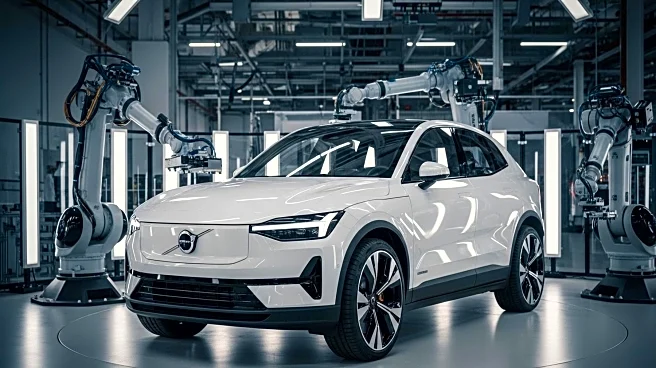What's Happening?
Volvo has announced an expansion of its manufacturing plant near Charleston, South Carolina, which is the company's first in the U.S. The plant, which opened in 2015, will now include production of the Volvo XC60, alongside its existing production of the fully electric EX90 and Polestar 3. This expansion is part of Volvo's strategy to optimize logistics and reduce emissions by producing vehicles domestically. Additionally, Volvo plans to introduce a next-generation hybrid vehicle by 2030, although specific details about the model and investment have not been disclosed. The company also unveiled updates to the 2026 Volvo EX90, including an upgrade to 800-volt battery architecture and enhanced computing power.
Why It's Important?
The expansion of Volvo's Charleston plant signifies a strategic move to strengthen its presence in the U.S. market, catering to local demand and reducing logistical costs. By producing vehicles domestically, Volvo can better meet customer needs and contribute to reducing emissions. The introduction of a next-generation hybrid vehicle reflects the company's commitment to electrification, aligning with broader industry trends towards sustainable transportation. The updates to the EX90, particularly the enhanced battery and computing capabilities, highlight Volvo's focus on innovation and safety, potentially setting new standards in the electric vehicle market.
What's Next?
Volvo's plans to produce a next-generation hybrid vehicle by 2030 indicate a continued investment in electrification and hybrid technology. The company is also preparing to unveil its next fully electric model, the EX60, in January 2026, which may introduce new modular architecture. These developments suggest Volvo's ongoing commitment to expanding its electric vehicle lineup and enhancing vehicle safety features, potentially influencing industry standards and consumer expectations.










